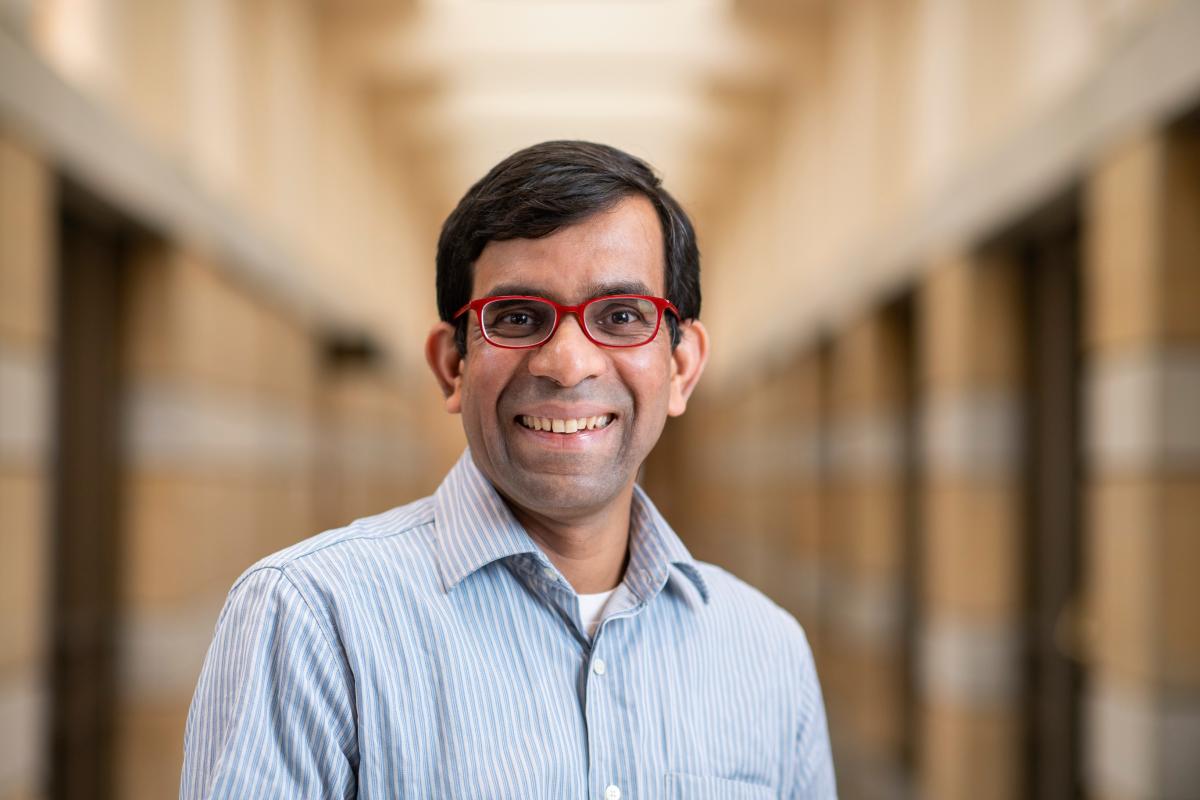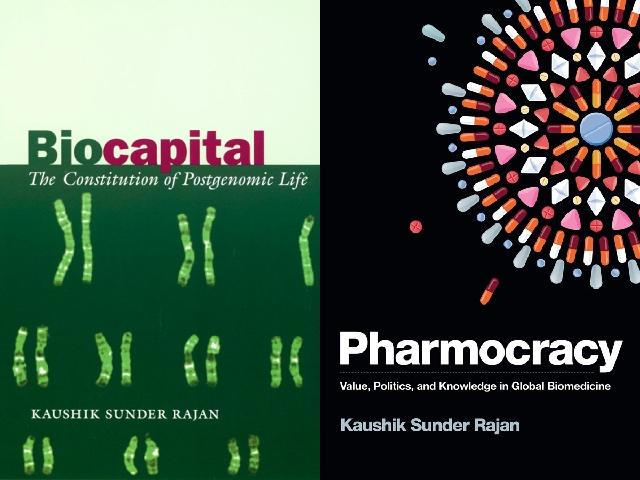
In Brief
- Sunder Rajan, an anthropologist studies the interplay of science, law, politics, and health.
- Much of his research has focused on India's pharmaceutical industry in India.
- His current focus is the right to health included in South Africa's post-apartheid constitution.
- Witnessing the rapid decline of Indian democracy has increased his commitment to human rights institutions.
Kaushik Sunder Rajan, an anthropologist who studies the world of medicine and health, begins this quarter as the Pozen Center’s new faculty director.
Contemplating the contributions he hopes to make, Sunder Rajan reflects on the Pozen Center’s mission to be a space where teaching, practice, and research inform each other. “The launch of the human rights major has really showcased our ability to put teaching and practice in conversation,” he says. “And now we have the opportunity to really think about how research relates – not just the type of research we’re incubating, but how we put it in dialogue with everything else we do.”
Sunder Rajan feels increasingly urgent about the importance of studying and defending rights. “There are important, lively critiques to be made of the human rights framework,” he says. “I think the Pozen Center is a place where those critiques can be made – but also where we can keep sight of what rights can offer in an era where they’re increasingly slipping away.”
Studying Science Itself
Sunder Rajan describes himself – half-jokingly – as “an anthropologist who was never trained in anthropology."
Growing up in India, he trained to be a lab biologist. “I found the world of science fascinating,” he recalls. “But I hated lab work, and I was very bad at it.”
Eventually, Sunder Rajan made his way to the then-burgeoning field of science and technology studies (STS), an interdisciplinary field that takes science itself as its object of study, investigating how political, cultural, and technological forces influence (and are, in turn, influenced by) the production of scientific knowledge.
During his lab science days, Rajan and his professional peers had closely followed political debates about drug patents, witnessing firsthand how shifts in Indian patent law affected research trajectories, drug availability, and public health. As an STS scholar, he returned to this subject, conducting ethnographic investigations of biotechnology labs and pharmaceutical companies, analyzing the interaction between Indian law and politics, global markets, history, science, and health.
Tracing the Influence of Rights
Sunder Rajan’s current research focuses on South Africa – the result, he says, of the “contingent happenstance” of a 2015 visit. Again, he is investigating the interplay of politics, law, science, and health – but this time in a context where the human rights framework is more obviously salient.
Unlike in India, South Africa’s constitution (written after apartheid) contains an explicit right to health. Inevitably, this has impacted the strategies employed by the country’s health advocates. Much of Sunder Rajan’s work involves trying to pin down what those strategies are, and what that impact has been.
Part of this project involves poring over trial transcripts and other court documents from health-related court cases, including the first ever class-action case brought against South African mining companies on behalf of mineworkers who had contracted silicosis or tuberculosis while working in the mines.
Sunder Rajan’s hopes to identify specific ways that the constitutional right to health influences how advocates make their cases and how they end up playing out in, and interpreted by, the courts. He is also conducting life-history and career-history interviews with lawyers, judges, health workers, and epidemiologists who were involved in these cases.
“What you quickly realize is that it’s impossible to have these conversations without centering human rights,” Sunder Rajan says. In South Africa, as in many other countries outside the West, there has been a long-running debate over rights-based frameworks for justice. Some argue that the very idea of human rights is a fundamentally flawed Western idea that limits political possibility in former colonies. Others see it as a useful toolkit for liberation from repressive pasts.
Sunder Rajan thinks neither side of the debate has it quite right. “What I do is take this as an ethnographic question,” he says. “And when you do that, you see that when rights instantiate on the ground somewhere like post-apartheid South Africa, they’re neither a continuation of – nor a break with – rights as imagined in Europe and America. Something different happens. You have Western ideals in the hands of non-Western actors, responding to their own immediate historical and political needs. The job of the researcher is to follow that transformation.”
The Urgency of Now
Sunder Rajan’s current commitment to rights has been shaped by the experience of witnessing the drastic curtailing of freedoms in the country where he was born. “In India, certain freedoms that people of my generation and older than me took for granted have gone away very quickly. Lawyers are being persecuted, journalists are being persecuted, teachers and students are being persecuted. And I feel America is on the cusp of something similar.”
“A decade ago, I had much more sympathy for the traditional critique of human rights from the left. About how they lead to narrow definitions of politics, prevent redistribution, prevent the articulation of dispossessed communities’ sensibilities, all of that. It’s a critique that has a lot of legitimacy.”
“But it seems possible now that the only thing worse than a world with human rights is a world without them. So I find myself invested – more than I might have guessed in the past – in the urgency of human rights institutions and human rights pedagogy.”
In the Winter Quarter, Sunder Rajan will teach "Human Rights and Postcolonial Politics," a course that focuses on the role of constitutional rights in the postcolonial histories of India and South Africa.

